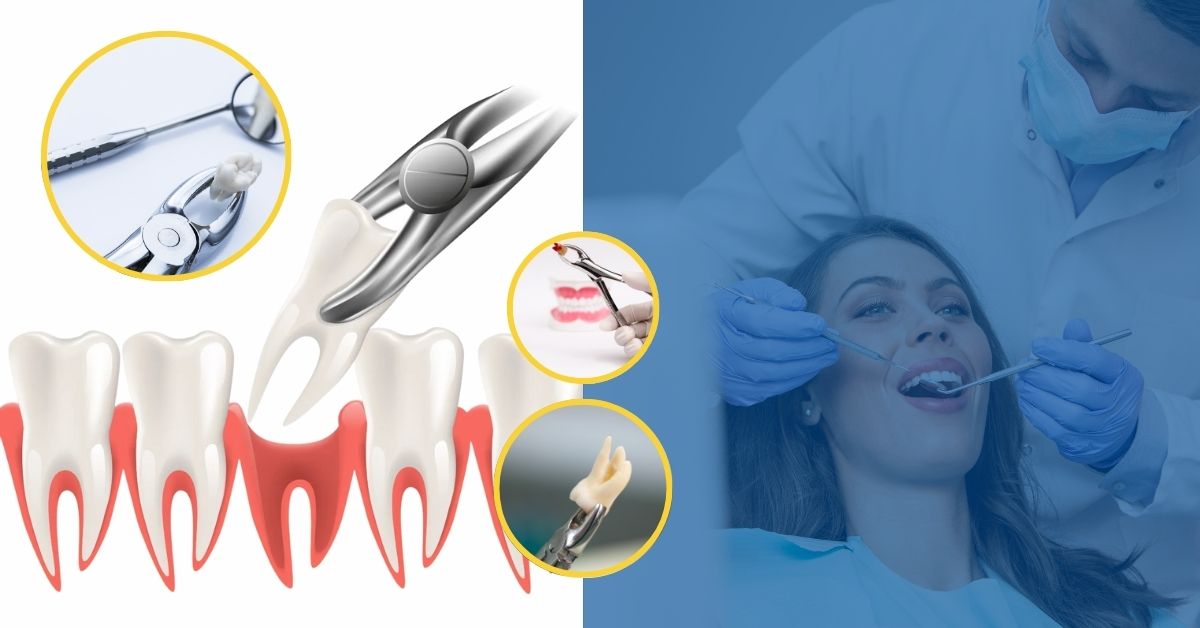Have you ever had a toothache that made you think your tooth was planning to get back at you? You’re not the only one. Tooth pain, especially when it’s caused by nerve problems, can be very painful in the mouth. Let’s learn about dental nerves, dead teeth, and why your dentist, with their expertise and tools, is like a superhero in a white coat, ready to save your tooth from the clutches of nerve death.
How Long Does It Take for a Nerve in a Tooth to Die?
The million-dollar question. The truth is that no one answer works for everyone. When a tooth nerve dies, it can occur quickly or slowly, and the process can take anywhere from a few days to a few months. It’s like asking how long it takes to get over a breakup: it depends on the reason and how dramatic the breakup was.
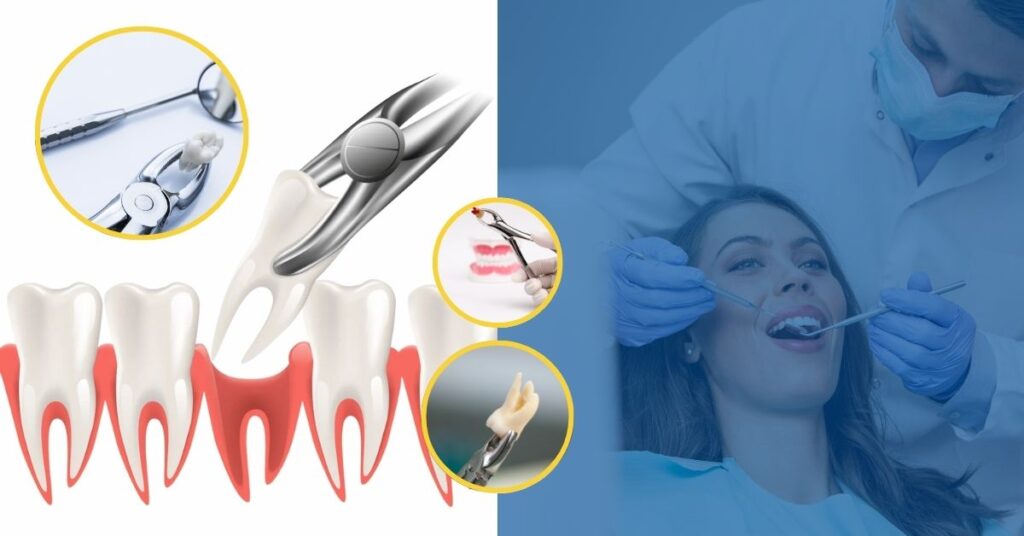
Factors influencing the timeline include:
- Cause (injury, decay, infection)
- Severity of the damage
- Your body’s response
A traumatic injury, like accidentally hitting your head on a lamppost (we’ve all done it, right?), can kill nerves quickly, in just a few days. On the other hand, untreated decay is a slow burn; it can take months or even years to kill the nerve.
Symptoms of a Dying or Dead Tooth: The Telltale Signs
Your tooth might be trying to tell you something if you notice:
- Pain: From mild discomfort to “I can’t believe I’m crying over a tooth” level pain.
- Discoloration: If your tooth starts looking like it’s auditioning for a zombie movie, it might be dying.
- Sensitivity: Wincing at hot coffee or ice cream? Your tooth nerve might be waving the white flag.
- Bad taste or smell: If your breath could knock out a small animal, it’s time to see a dentist.
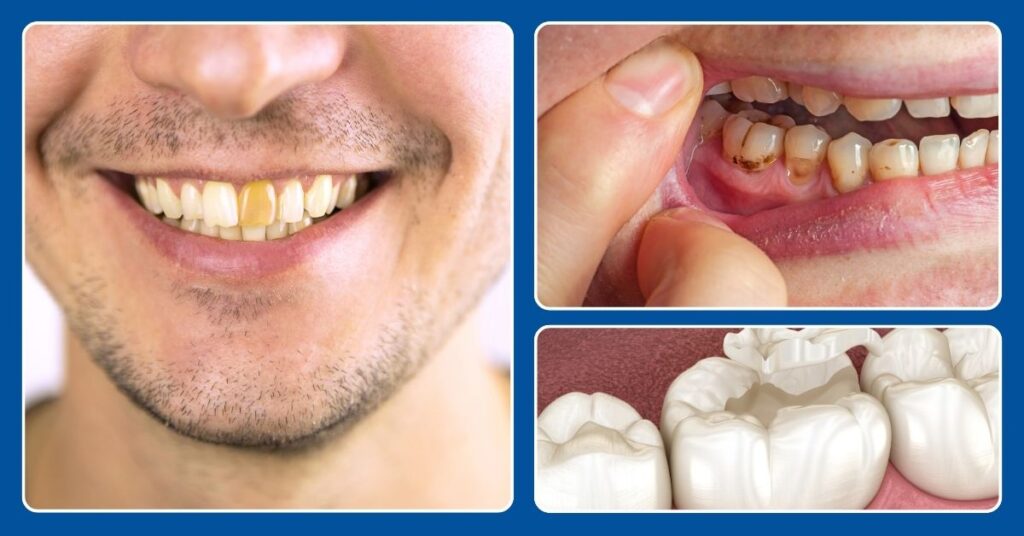
Here’s the kicker: A dead tooth doesn’t always hurt. It’s like that friend who stops talking to you; they’re quiet, but they might be a problem.
How Long Can a Dead Tooth Stay in Your Mouth?
A dead tooth can stay around for years, just like that houseguest who won’t take the hint. But here’s the thing: not getting a dead tooth treated is about as smart as trying to do your root canal with a spork.
Why? Because that seemingly harmless dead tooth can lead to:
- Abscesses (not the fun kind)
- Spread of infection to other teeth
- Bone loss in your jaw
- Systemic health issues (because your mouth and body are surprisingly chatty)
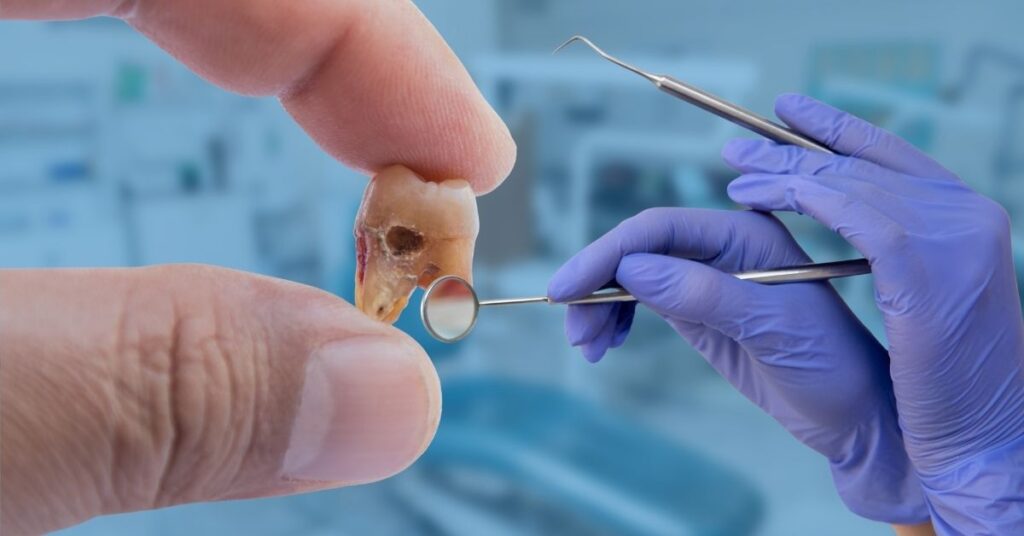
The bottom line? If you suspect you’ve got a dead tooth, don’t wait for it to fall out on its own. Pinellas Family Dental is your go-to for prompt evaluation and treatment. Trust us, your future self will thank you. Our team of experienced professionals is here to guide you through the process, ensuring you’re in safe hands.
The Root Canal Chronicles: What Happens After Your Tooth Nerve Dies
So, you’ve had your tooth pulled. Well done! You just gave your tooth a second chance to live. But how long will this zombie tooth last?
A tooth that has had a root canal can last a lifetime if you take care of it. It’s like putting a superhero cape on your tooth. It makes it stronger, but not unbreakable. What is the secret to a long life? A good filling or crown, combined with perfect oral hygiene.
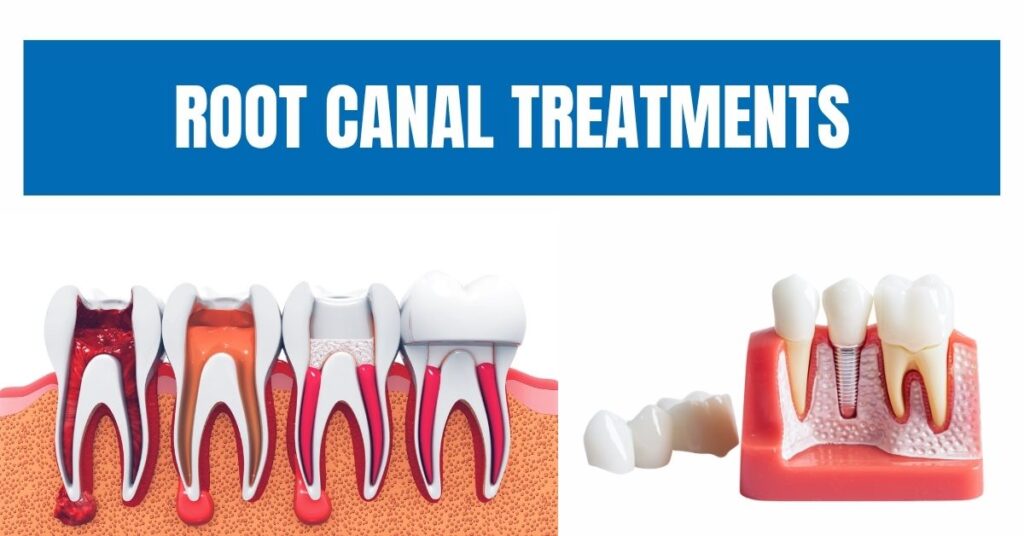
Here’s a tip from a pro: Your root-canaled tooth is like a soldier without armor if it doesn’t have a crown, especially on the back teeth. It works, but it’s weak. Crowns protect your teeth, allowing them to withstand the daily grind (pun intended).
Can a Root Canal Go Bad After Many Years?
Yes, but it’s not common to find a dentist who doesn’t recommend flossing.
Root canals can fail years later because of:
- New decay (cavities are sneaky)
- A cracked tooth (life happens)
- Not completely removing infected tissue during the first procedure (oops)
Don’t ignore it if you have pain, swelling, or a recurring abscess in a tooth that has been root-canaled. Your tooth is sending out a distress signal. Answer the call and go to the dentist right away.
The Naked Truth: How long can you go without a crown after a root canal?
Not putting a crown on a root-canaled tooth is like sending it into battle in flip-flops. It might last for a while, but why take the chance?
Front teeth might be able to go without crowns for a longer time, but for molars and premolars, a crown is like a bulletproof vest: it’s necessary for long-term survival. The exact lifespan varies, but the risk of breaking increases over time without the protective cap.
Debunking the Myth: Kill Tooth Pain Nerve in 3 Seconds Permanently
Let’s get this straight: There is no magic wand that can make tooth nerve pain go away in three seconds. If someone tells you something else, they are probably trying to sell you snake oil, which is bad for your teeth.
You should see a dentist right away if you have severe tooth pain. Home remedies might help for a short time, but they’re not a long-term solution, like putting a Band-Aid on a broken leg. Ignoring tooth pain can lead to more serious issues, so it’s crucial to seek professional help as soon as possible.
The Takeaway: Don’t Let Your Teeth Ghost You
Tooth nerve issues are no joke. Whether you’re dealing with a dying nerve, a dead tooth, or post-root canal concerns, prompt professional care is your best bet.
Remember:
- Early intervention can save your tooth and your sanity
- Regular check-ups catch problems before they become nightmares
- Ignoring symptoms is a gamble with your oral health (and wallet)
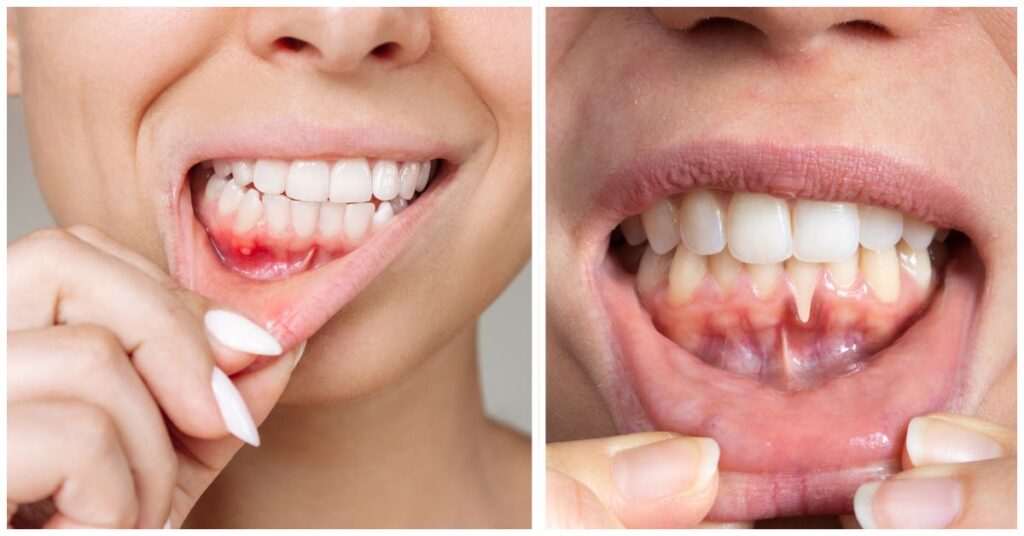
Are your teeth hurting, changing color, or do you just have a nagging feeling that something isn’t right? Don’t wait for your tooth to send you a goodbye letter. Call Pinellas Family Dental at dentalflorida.com right now. Our team is ready to help you achieve a healthier and happier smile—no zombie teeth allowed.
Your teeth have mostly been good to you. Please give them the care they need in return. You want to keep them around for all those selfies you plan to take in the future, right?
Recent Post
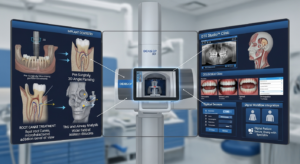
What’s New in the DEXIS OP 3D? How Dentistry Helps Doctors Find and Treat Patients Better
The most important change in modern dentistry is the shift from two-dimensional X-rays to three-dimensional imaging. A major innovation driving this change is the DEXIS
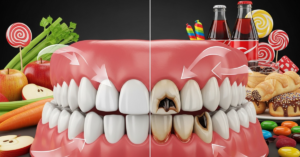
How Diet and Sugar Impact Your Teeth More Than You Think
Brushing, flossing, and going to the dentist are the most common ways people think of to keep their teeth healthy. Your diet has a bigger

How Winter Affects Oral Health: Common Dental Issues You Should Know
Imagine this: You go outside on a cold winter morning, and when you take that first breath of cold air, you feel a sharp pain

New Patient Exams vs. Annual Checkups: What’s the Difference?
We know that looking for a new dentist can make you worry about things like “Will my first visit hurt?” or “Will the visit cost

Say Goodbye to Sensitive Teeth: Surprising Habits That Really Work
Have you ever bitten into ice cream or sipped a hot drink, only to feel a sharp zing in your teeth? That quick, uncomfortable jolt
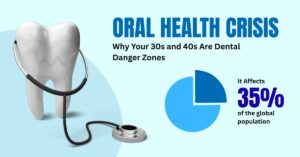
Oral Health Crisis: Why Your 30s and 40s Are Dental Danger Zones
Have you ever thought about why your dentist seems to become your best friend in your 30s and 40s? Spoiler alert: They don’t miss your


